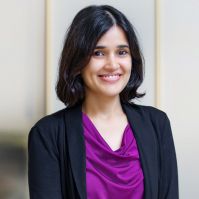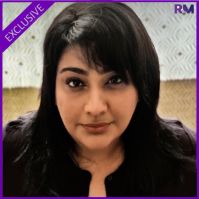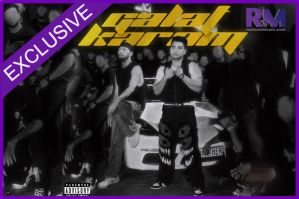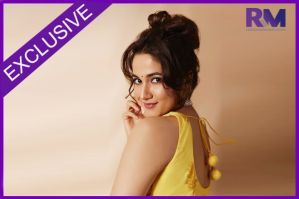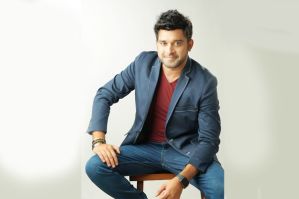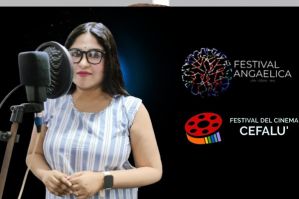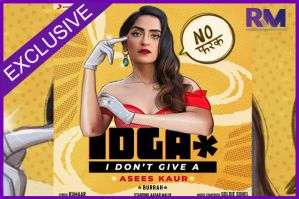Punkh founder Deepak Nair - It is my right and my duty to be true to myself, and write and compose in the language that belongs to me

Punkh, a fresh experiment in the Indian music arena, released their self-titled debut album. The heart and soul of Punkh is Deepak Nair, better known as Dean. Dean has been singing professionally for more than 12 years now and is the founder, song-writer and lead singer of Punkh. He holds a Bachelors degree in jazz and pop music from Germany with a major in vocals and has also had the opportunity to learn Hindustani classical music for some time.
When Anuraag Dhoundiyal met up with Dean for an exclusive chat, the Punkh founder left him with an impression that there is still some scope for the youth of this country to not just ape the west blindly, but to do something fresh, creative, productive, and out-of-the-box, by using technology to the fullest.
Excerpts from the tete a tete -
What made you get into the field of making music professionally?
I had always been musically inclined, and was a very active part of the Delhi rock scene for quite some time. Releasing my own album, and getting into it full time had always been on my mind, but pushed aside every time I saw the politics and the rat race that all bands these days are in. It so happened that we got an opportunity to perform somewhere in India (place not being disclosed for security reasons), and post the performance, on our way back, we were held by some drunk terrorists at gunpoint. At that moment, all I could think of, was that if I do get out of this place alive, I'm going to have MY own band, and MY own album released. So here I am, in front of you, alive and kicking!
How was the experience of a full-time course in music? How much did it help you practically?
Once I came back from the concert I mentioned, there was a huge question mark as to where my life was headed. One of my good friends was doing a course in Germany, and he suggested I do this specialised course in Music. It was a huge decision. Just for the flight tickets for my interview in Germany, I had to sell my keyboard and all my equipments and a lot was at stake; but I took the plunge. My mom's immense support, and my family's belief in me made it all happen and I went to Germany for a full-time course. Life wasn't easy there. I had to juggle between studies, assignment, my part-time job, recordings, and composing; but the course brought crystal clear thinking, and brought good understanding as to how things are, and how things should be. Plus I believe that we Indians, musically, always have an upper hand. Due to the amount of exposure we get, we're better equipped and more accepting of different forms of music.
Since I had a foundation of Indian Music, I had a finer edge over most other musicians back there.
Despite the fact that you have such a strong background in western forms of music, your songs are all in Hindi. How important do you think it is, to maintain this distinct identity?
When you are rendering a specific album, it is very essential to keep in mind your own roots and your own original being. Inspite of being so deeply involved in rock, pop and jazz, I know that my core is, and will be Indian. I despise the Indian bands that perform in India and then degrade the country by insulting its culture, and being irreverent to the country that made them what they are. My music and my songs are a complete slap on their faces. Although English comes very naturally to me, I believe it is my right and my duty to be true to myself, and write and
compose in the language that belongs to me. Also, when I perform abroad, people get ensnared by the fact that an Indian, who sings in Hindi, but can speak English, and can do their stuff too!
But this doesn't mean that there are no elements of English in the album. The compositions are influenced to a great extent by pop, rock, jazz, hip-hop, etc., and my dear friend Carsten Peter has contributed in the album with his raps in English, and has given a different flavour to the album.
Is your music inspired by a certain band- international, or otherwise? What genre would you like to classify your music as?
I wouldn't say that I have a band that I worship and follow. Yes, the music has very distinct elements of pop, rock, jazz and hip-hop, but I have made sure to keep it distinct, fresh and original. Even when I sit to compose music, there's nothing as a pattern that I have in mind. It's like Stream of Consciousness. The only thing that dominates the making of a song is its feel; be it the lyrics, or the melody.
So it'd be unfair to say that it's been inspired by one single band, or that it adheres to one single genre. I'd like to profess that my music falls under the "Power Pop" category. It's pop, with the energy of rock, the melodic influence of jazz, and a flavour of hip-hop so that you can move to the beats.
You are the whole and soul of the band Punkh. So how do you manage live performances?
I've learnt a lot from my past experiences in the 12 years of being in this field, and one of the major things I've learnt, is that it's difficult to depend on anyone else, but one's own self. So in live performances, I use a pre-set basic structure of beats and constant groove that a DJ plays for me for all my tracks, on which live electric guitars, a bass guitar, a rapper and I jam. So except me, there is hardly any other constant factor in the band. Whenever Carsten has the time, he joins me, which is just a perk, but not a regular feature. Apart from that, we use a lot of visuals to accompany the music, so as to provide a holistic experience in the hour-long non-stop live performance that we do.
How do you see yourself and Punkh poised at this stage, in relation to the Indian music scene?
India has developed over the years. Immediately after independence, doctors were in high demand, since people needed to concentrate on their health. Then there came a phase where lawyers were in great demand, since people were fit and healthy, and were concerned about their rights. After that came a phase of architects and builders, and then a phase of engineers, and MBAs. But now, is the phase of the Performers and Entertainers. People have enough resources to spend on entertainment, and since recorded tracks are available virtually free of cost, due to improvement of technology; I believe it's the performers who will take the cake. It's someone who can go the extra mile, and deliver something more. In that context, I believe we have a long-term relationship with the Indian music scene.
Where do you see yourself in the next few years?
That's a difficult question to answer. I believe in the Alchemist theory of "Divine Conspiracy". I believe that if one really wants something from the bottom of one's heart, the whole universe conspires towards that one particular goal. I think this has started happening in my life. Punkh, for me, has been a means to break the conventional psyche of the Bollywood-driven Indian mindsets. It will take some time, but the transition has started happening with composers like AR Rehman, Shankar Ehsaan Loy, Vishal Shekhar, Pritam, etc. So, in the next few years, I hope to have produced some quality music, and hope to have made a mark in this music industry.
So, what's the immediate plan of action now?
Oh, I'm am taking a pure vacation after a long long time. then back to work in India itself, promoting Punkh. We will have a gig in Mumbai, somewhere in the second week of January. So as of now, I'm looking to relax for a bit.





